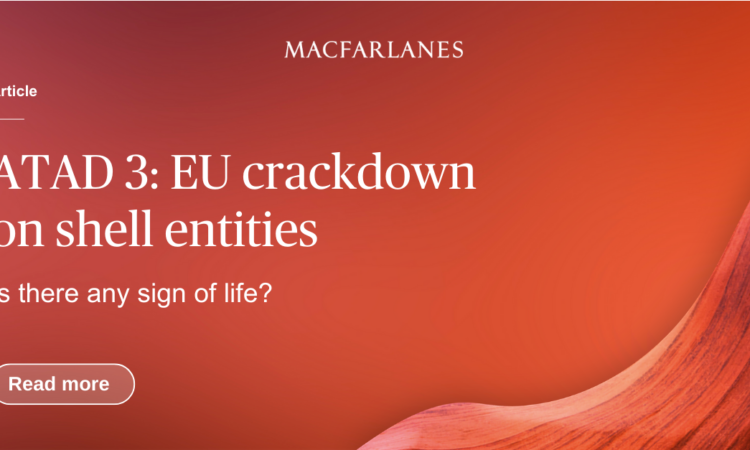
This had stalled, and while there has been renewed optimism (or despair, depending on your perspective) now that Spain have taken over the EU Council Presidency and have expressed a commitment to pull it back out of the long grass, there are reports the directive is unravelling. In an effort to reach agreement it is proposed that the directive will be pared back with the first phase seeking to introduce an exchange of information about shell entities.
The substance criteria remains a critical point of disagreement amongst member states, therefore removing tax consequences from the framework is not guaranteed to break the deadlock. There have been a number of drafts since the original, which focused on reasonably high levels of required substance, but with lots of carve outs. The latest drafts we have seen have now taken a different approach.
There are now far fewer carve outs in the draft text – covering only:
- listed companies;
- regulated financial entities; and
- entities with at least 10 full-time employees.
This regulated financial entities carve-out covers most funds – but not fund holding companies as had been expected and had appeared to be the case under the original draft. Discussions to introduce a Pillar 2 style exemption for holding vehicles remains under discussion. A loophole in the previous draft which excluded companies that did not outsource director functions appears to have been spotted and closed.
Therefore, we expect a lot more companies than had previously been the case to be within the scope of the rules – if and when they are introduced.
More positively, however, the actual minimum substance levels required are much more manageable than might previously have been the case – with only a need for a single (adequately qualified) director resident in the territory, who is not a director of more than four entities which are not associated. The definition of associated is important here – we currently expect holding companies of funds ultimately under the same control all to be associated, so this appears to mean a director can only act for four different unrelated groups but should be able to act for multiple companies within a fund group.
The requirement to have one’s own premises in the relevant jurisdiction remains, but this also now allows those premises to be shared with associated entities. The requirement to open and maintain a bank account in a Member State – probably the hardest condition of all at the moment – has been softened to become an alternative criterion.
It remains unclear whether these amendments will make the final cut. Furthermore, while political negotiations continue on how to proceed this remains a file to monitor until a final compromise text is published and put to a vote. The Economic and Financial Affairs Council meeting in November is likely to prove decisive in whether Spain can broker an agreement or whether the Unshell directive remains on life support.
This article was first published in the Macfarlanes Private Capital Review in October 2023.





